




 |
   |
 |
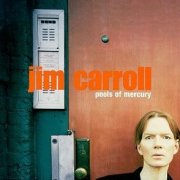 |
Pools of Mercury (1998, 46.11) ***½/T |
|
| Train Surfing Falling Down Laughing Zeno's Law of High-Heeled Shoes Desert Town It Goes My Ruins Pools of Mercury Things That Fly |
I am Not Kurt Schwitters Hairshirt Fracture Female as Thunder Cinco de Mayo Message Left on a Phone Machine The Beast Within 8 Fragments for Kurt Cobain |
|
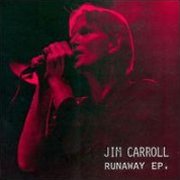 |
Runaway EP (2000, 18.28) ***/TRunawayHairshirt Fracture I Want the Angel (live) It's Too Late (live) Falling Down Laughing (live) |
Current availability:
Chamberlin/Mellotron used:
Jim Carroll was born in 1950, detailing the hard drugs and prostitution of his teenage years in The Basketball Diaries, filmed in 1995. He formed the Jim Carroll Band in his late twenties, collaborating with various New York alumni, including Patti Smith, Lou Reed and the Blue Öyster Cult, amongst others. As much a poet as a musician, Carroll has released a handful of records, 1998's Pools of Mercury being his first in fifteen years. Unsurprisingly, much of its content consists of poetry read to music, although there are some proper 'songs' on board, too, notably the excellent Falling Down Laughing and Desert Town, although Carroll speaks rather than sings, in the way that Americans seem to manage with effortless cool, while Brits just sound awkward and self-conscious. Anton Sanko plays Chamberlin, with strings on Things That Fly and (notably, albeit briefly and uncredited) on Hairshirt Fracture, although it's not groundbreaking stuff on the Chamby front, to be honest.
Two years on, Carroll released his latest recording to date, the Runaway EP and yes, it's the Del Shannon song, with a surprisingly faithful clavioline (or facsimile thereof) solo. Hairshirt Fracture is a completely different recording to the album version, featuring largish slabs of Mellotron church organ from Built to Spill/Truly stalwart Robert Roth, highly unusually outside a self-consciously 'prog' setting and all the better for it. The album's worth getting hold of, the EP less so, though neither really for their tape-replay work, despite the rare sighting of the Mellotron pipes. Is it just me, or does Carroll's pic on the Pools of Mercury sleeve makes him look like Thin White Duke-era Bowie? Deliberately? Who knows? As a sad (but inevitable) postscript, Carroll died of a heart attack, aged sixty, mere months after I wrote this review.
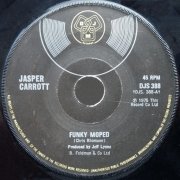 |
7" (1975) **½/T Funky Moped Magic Roundabout |
Current availability:
Mellotron used:
A little piece of British social history for you. In the '70s, the top level of the UK comedy club scene consisted of a handful of (invariably male) musician/comedians, all beginning their careers as folkies, each hailing from a different region of the country. Glasgow had the legendary Billy Connolly, Wales, Max Boyce, Manchester, Mike Harding, the West Country, Fred Wedlock and London, the awful Richard Digance, amongst others. "But whither Birmingham?", I hear you cry. Or not. Birmingham had Robert "Jasper Carrott" Davis, an institution on the scene to this day, for better or worse, having recently been unwillingly subjected to a blast of his dated 'grumpy old man' humour at a festival. In my teens, however, he was the funniest man alive, his scattergun approach appealing to my fifteen-year-old self, unlike the staid likes of Morecambe & Wise and The Two Ronnies (non-Brits should probably skip this bit). Stand-up routines such as Car Insurance, Local Radio and Magic Roundabout had us rolling in the aisles, a world away from the stuff the BBC allowed to be broadcast, before or after the 9.00 pm watershed.
His first single (of a mere three), 1975's Funky Moped b/w Magic Roundabout, reached #5 in the UK singles charts, albeit in an era when novelty singles frequently sold by the hundreds of thousands. The 'A' is your classic novelty number, built around a rock'n'roll template, complete with Leader Of The Pack-style intro, while the flip is a live recording of his scurrilous ruminations on children's TV favourite The Magic Roundabout, actually featuring in a later sketch of his involving a local radio interview where the presenter decided to flip the disc so his listeners could 'hear the other side'. How we laughed... Various Brummie musicians, not least Fairport's Dave Pegg, make frequent references to the 'Birmingham Mafia', a loose-knit group of musos united by their willing-or-otherwise participation in the music scene of a relatively small city, where everyone knew everyone, not least members of Led Zeppelin, Slade and The Moody Blues. As a probable result, this was produced by none other than Jeff Lynne (duh, ELO, The Idle Race, briefly The Move), presumably as a favour. Or was he simply well-paid? It is, frankly, pretty awful, while the flip's 'humour' has dated fairly badly. Was it even particularly funny at the time? I thought so, but I was in my early teens.
Without any instrumental credits, it's hard to say, but it may well be Lynne playing the minute or so of the rarely-heard Mellotron boys' choir (from the ELO M400?), heard underneath Carrott's opening soliloquy. Or not, who knows? To be perfectly honest, I'm not sure I'd have even spotted it unaided, so a kind-of thanks to that nice Martin Smith at Mellotronics HQ, who should possibly know better at his age. Although this remains uncollected on any Carrott compilation, it's been anthologised on CD several times, tragically, on albums such as 1995's One More Time Great Hits and 2005's Classic Cuts 25: Novelty, but, since there's precisely zero chance of your tracking down (or even wishing to) such efforts, if you really have to hear this, you can do what I did and find it on YouTube.
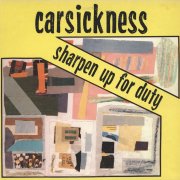 |
Sharpen Up for Duty (1982, 43.48) ***/TTT½ |
|
| Hearts in Traction Flowers of Fire Never Walk Alone Heard You Screaming In the Steel of the Night Warriors Chant Sharpen Up for Duty |
Victims Never Smile Run Away Soldiers Invisible Man Everything Must Fall |
|
Current availability:
Mellotron used:
Pittsburgh's Carsickness are usually lumped in with the New York no wave scene, artists who rejected punk's traditional rock'n'roll elements in favour of 'noise, dissonance and atonality...reflecting an abrasive, confrontational and nihilistic worldview' (thanks, Wikipedia). The end result, on their second (and last) album, 1982's Sharpen Up for Duty, is actually less avant- than that description suggests, material such as the title track, Victims Never Smile and Invisible Man hinting at the less mainstream end of Talking Heads.
Steve Sciulli plays Mellotron, with skronky strings on Flowers Of Fire, Heard You Screaming, In The Steel Of The Night, Victims Never Smile and Everything Must Fall, particularly choppy ones on Run Away Soldiers and flutes and cellos on Warriors, often used in a pleasingly random fashion. All most unexpected on an album of this type, recorded when it was, I must say. As 'out there' goes, this is quite tuneful, relatively speaking, with enough Mellotron to make it worth the effort for aficionados.
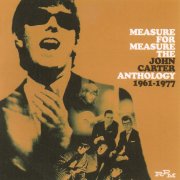 |
Measure for Measure: The John Carter Anthology, 1961-1977 (2003, 158.56) ***/TT½ |
||
| Carter-Lewis & the Southerners: Will it Happen to Me My Broken Heart Somebody Told My Girl Easy to Cry Sweet and Tender Romance The Ivy League: Funny How Love Can Be Lonely Room Tossing & Turning Running Round in Circles My World Fell Down Carter Shaw Keen: I Couldn't Spend Another Day Without You Ministry of Sound: White Collar Worker Carter Shaw Keen: Time and Motion Man Little Ray of Sunshine John Carter: Winchester Cathedral Carter-Lewis: Playing With Fire John Carter: She Won't Show Up Tonight Brown and Porter's (Meat Exporters) Lorry Viv Prince: Light of the Charge Brigade John Carter: Am I Losing You |
The Flower Pot Men: Let's Go to San Francisco A Walk in the Sky John Carter: Sunshine Girl Conversations (in a Station Light Refreshment Bar) Carter-Lewis: Birmingham Brass Band The Flower Pot Men: You Can Never Be Wrong Friends: Mythological Sunday Haystack: Letter to Josephine Pantomime People Tahiti Farewell Dawn Chorus: A Night to Be Remembered John Carter: My Sentimental Friend Knock Knock Who's There The Flower Pot Men: White Dove Say Goodbye to Yesterday Scarecrow: I Want to Be Where You Are |
Stamford Bridge: Little Boy Blue Happiness and Rainy Days Move Out of Town First Day of Your Life Arizona Lost and Gone Stormy Petrel: Hello Hello Hello First Class: Coney Island Kincade: Dreams Are Ten a Penny Do You Remember Marilyn Big Hand for Annie First Class: Beach Baby What Became of Me Kincade: Slow Down First Class: And She Cried Starbreaker: Sound of Summer John Carter: British Caledonian (ad) Bird's Dream Topping (ad) Rowntree's Tots (ad) Vauxhall Chevette (ad) |
|
Current availability:
Mellotron used:
John Nicholas "John Carter" Shakespeare is a slightly forgotten figure these days, except among aficionados of British '60s pop, for whom he's remembered as the nearest the UK got to America's Curt Boettcher. Carter and his friend Ken "Lewis" Hawker played together in Carter-Lewis & the Southerners and The Ivy League in the early '60s, after which they backed away from the limelight and took backseat roles, writing and recording a huge quantity of material, using a pool of trusted session singers and musicians. This material was released under a bewildering variety of names, notably The Flower Pot Men, other monikers including Friends, Ministry of Sound, Dawn Chorus and The Haystack.
RPM's 2003 two-disc Measure for Measure: The John Carter Anthology, 1961-1977 could never be more than an overview of Carter's work, taking in his major hits, lesser-known material and demos, also covering his and his wife's equally fly-by-night '70s outfits Stamford Bridge, Scarecrow and Kincade. The duo finally hit gold as The First Class in summer '74 with the stunning Beach Boys-go-glam of Beach Baby, after which their fortunes declined. Aside from the expected Mellotron tracks covered elsewhere, a solo Carter demo, Sunshine Girl, features a lovely MkII flute solo, while his demo of a track ultimately released as A.P. Dangerfield, the 'why wasn't this a hit?' Conversations (In A Station Light Refreshment Bar) has the same string and flute parts as the eventual single, only further in the background.
I have to say, over two hours of this stuff is a little wearing if you aren't really into lightweight '60s-to-'70s pop, but there are a handful of gems scattered amongst the by-numbers material in which Carter usually specialised. Several Mellotron tracks make this collection worth hearing, although you're probably better off with The Flower Pot Men's Listen to the Flowers Grow, also from RPM.
See: Beautiful People | The Flower Pot Men | Friends | The Haystack | Ministry of Sound | Stamford Bridge
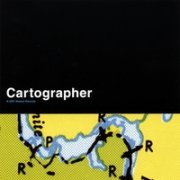 |
Cartographer EP (2007, 25.36) ***/T½The Trouble With YouI'm Not Following You Love Triangle for Two Sound Rebounds Waiting Suburban Girl Jeanette |
Current availability:
Mellotron used:
Minneapolite (is that a word?) Scott Gagner switched from drumming to singer-songwritering, enlisting the help of several friends to complete the Cartographer EP, released under the same name. It sits at the indie end of pop/rock, which is better than the reverse, at its best on I'm Not Following You and Suburban Girl, maybe.
Gagner apparently recorded the Mellotron 'in his bedroom', which is almost a certain sample giveaway, as are the indifferent flutes on Sound Rebounds and Waiting, except that... Closer Jeanette features him messing about on the instrument (on flutes), complete with a 'not pressing the key down heavily enough' moment near the beginning; it's such a distinctive sound that I can't imagine how you'd fake it. As such, here it is and here it sits, unless I receive definite information to the contrary.
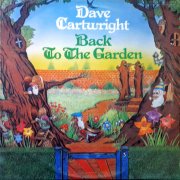 |
Back to the Garden (1973, 38.42) **½/T½ |
|
| Nights of Magic My Delicate Skin Cobweb Broom To Make Tomorrow Green A Little Bit of Glory Dark Eyed Sailor Shepherd's Return Chains |
Angeline Dance of the Seasons Back to the Garden (Reprise) |
|
Current availability:
Mellotron used:
After working his way through several West Midlands-based bands, Dave Cartwright (1943-2015), signed with Transatlantic ('home of the folkie') in 1970, releasing three albums before switching to DJM in the middle of the decade. 1973's Back to the Garden was his second proper solo effort (ignoring a 1971 release credited to 'Dave Cartwright & Friends'), a rather limp singer-songwriter record, at its best on the more energetic Chains and the harpsichord-driven Dance Of The Seasons. Sadly, it's typified by the insipid likes of opener Nights Of Magic and Dark Eyed Sailor, which may have cut the mustard in the early '70s (or may not?), but certainly don't half a century later.
Either Ted Taylor or session semi-legend Mike Moran play Mellotron, with distant 'orchestral-alike' strings on the chorus of Nights Of Magic, slightly more upfront strings and muted choirs on Shepherd's Return and cello on Angeline. Cartwright went on to become a BBC local radio presenter, an author and a studio owner, amongst other career options, privately releasing several more albums later in life. Sad to say, I doubt whether they're any more gripping than this rather sorry effort.
 |
While You Weren't Looking (2002, 47.43) ***/½ |
|
| Shallow Heart, Shallow Water Please Don't Hurry Your Heart Fireworks What Will You Do? Thick Walls Down Sorry Pony The Fair |
Too Many Keys Hold on to Me I Ain't Found Nobody Yet |
|
Current availability:
Chamberlin used:
Along with the better-known Ryan Adams, Caitlin Cary is the other ex-Whiskeytown member to have a visible solo career, taking that outfit's Americana template and, er, making it more mainstream. Saying that, several tracks on her solo debut, 2002's While You Weren't Looking put the alt. into alt.country, not least Thick Walls Down and Pony.
Jen Gunderman plays Fidelitorium Studio's Chamberlin, if barely, with background strings on opener Shallow Heart, Shallow Water, only really audible at the end of the track. No wonder I originally threw this into the sample dungeon... It seems Caitlin's musical career stalled after her third release, in 2005; her website now advertises her fine art prints.
See: Samples etc.
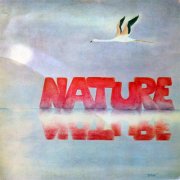 |
Nature (1977, 35.07) ***/TT |
|
| Waters Hot and Cool Ices Slipping Away Mountains Nature Watch Out! Eagles Tigers |
Jungle Leaves |
|
Current availability:
Mellotron used:
Paolo Casa released several albums of library music in the late '70s, including 1977's Nature, recorded at Rome's Sound Work Shop studio. Sound Work Shop was founded in the '60s by Piero Umiliani, whose remit was to record and release albums of instrumental music for use on TV, that is, library music, so it's hardly surprising that Casa chose to use the facility. Nature is a decent example of the genre, working its way through several different styles, including proto-new age (the title track), pseudo-classical piano (closer Leaves) and, of course, cop show funk (Tigers). Its default setting, though, is soft rock, perfect as background music, at its possible best on Watch Out! and Eagles.
Casa plays Mellotron on a handful of tracks, with major flute work on opener Waters, alongside Gabriele Ducros' real one, plus choirs, a string line running right through Ices Slipping Away, quite distinct from the album's string section, and chordal choirs on Mountains. Do you need to hear this? Possibly not, although it does what it does with aplomb. As ever, try YouTube.
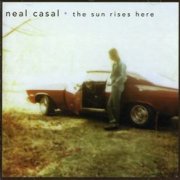 |
The Sun Rises Here (1998, 40.18) ***/T |
|
| Today I'm Gonna Bleed On the Mend Reason Angelina Halfway Through Town Dandelion Wine The New Jenny Jenkins Real Country Dark |
Best to Bonnie The Last of My Connections Untitled |
|
Current availability:
Chamberlin used:
Arguably best-known for his membership of Ryan Adams' Cardinals (also playing in a later version of Blackfoot, oddly), Neal Casal had a thirty-something-year career before his untimely death in 2019. His fourth release, 1998's The Sun Rises Here, errs towards the country side of Americana, better tracks including opener Today I'm Gonna Bleed, the vaguely rocky Reason and the brief untitled track that closes the album, although the whole veers a little too close to 'trad' country for this listener.
Chris Pitman plays Chamberlin on The New Jenny Jenkins, with an intermittent flute part throughout; nice to hear, if slightly inessential. The Sun Rises Here probably isn't for Americana fans who prefer the genre's more energetic elements, but does a decent enough job in its chosen niche.
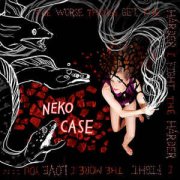 |
The Worse Things Get, the Harder I Fight, the Harder I Fight, the More I Love You (2013, 38.14) ***/T |
|
| Wild Creatures Night Still Comes Man I'm From Nowhere Bracing for Sunday Nearly Midnight, Honolulu Calling Cards |
City Swans Afraid Local Girl Where Did I Leave That Fire Ragtime |
|
Current availability:
Mellotron used:
Virginia's Neko Case runs her solo career concurrently with her membership of Canada's The New Pornographers (although American, she lived in the country for some years). 2013's The Worse Things Get... is her sixth solo release, an indie-end-of-Americana record, at its best on the energetic Man, Bracing For Sunday and the gentle Calling Cards.
Bo Koster's Mellotron (the Wavelab M400) can be heard on opener Wild Creatures, with some speedy, echoed flute arpeggios, cellos and high, stabby strings. Those flutes originally led me to chuck this in the sample dungeon, but you can do a lot with a delay unit...
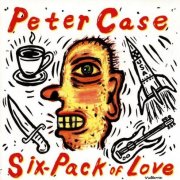 |
Six-Pack of Love (1992, 42.34) ***½/T |
|
| Vanishing Act Deja Blues Dream About You When You Don't Come Never Comin' Home It's All Mine Why Don't We Give it a Go? Why? |
Last Time I Looked Wonderful 99 I've Been Looking for You Beyond the Blues It Don't Matter What People Say |
|
Current availability:
Chamberlin used:
Peter Case was a member of The Nerves in the late '70s, the band who wrote (and originally recorded) Hanging On The Telephone, arguably Blondie's best song. Case didn't write it, but went on to a lengthy solo career, 1992's Six-Pack of Love being his third release, an album you could nominally describe as 'powerpop', although his influences run far deeper than the usual 'B' bands. Highlights include opener Vanishing Act, Dream About You (I'm a sucker for a descending bassline) and It's All Mine, while Why Don't We Give It A Go?'s boogie-woogie and the Dylanesque Beyond The Blues prove that there's more than one string to Case's bow.
Co-producer Mitchell Froom plays one of his Chamberlins, with occasional slow strings on When You Don't Come and a string line on Last Time I Looked, although the 'is it/isn't it' line on Vanishing Act is most likely the combo organ heard elsewhere on the track. The album's clattery production is classic Froom (think: Richard Thompson's Mirror Blue); an acquired taste, perhaps, but it rarely gets in the way of Case's excellent songwriting.
See: Samples etc.
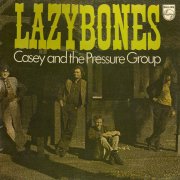 |
Lazybones (1970, 36.00) ***/T½ |
|
| Lazybones Deep Down and Dirty Venus Stockmobile Silly Sue In the Smokehouse Soul Tango Change the Better |
Peer Gynt E.R.G. Just Like Anyone A Shade of Blue |
|
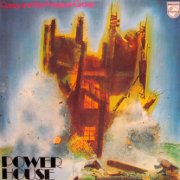 |
Powerhouse (1970, 30.38) ***/0 |
|
| The Train Funky Business Powerhouse Save Our Soul Wailing Arab Heighty-Hi This is Just the Beginning Sour Grapes |
Dynamite Outasight |
|
Current availability:
Mellotrons used:
Casey & the Pressure Group (ho ho) were a mostly instrumental Dutch soul/funk outfit, albeit more in what's come to be known as a 'rare groove' format than a 'matching suits with bow ties' one. Led by Cees (or C.M.) 'Casey' Schrama, they only lasted for three albums, the first two both released in 1970, both now unwitting providers of breaks for those too untalented to actually write their own music (ouch...). They debuted with Lazybones, a decent enough collection if you're into such things, with more sonic variety that I'd expected, incorporating mainstream pop and country amongst the album's influences; and, chaps, what's with crediting Peer Gynt (a.k.a. a funked-up Hall Of The Mountain King) to yourselves, eh? Schrama plays keys, including (Phonogram Studios' M300?) Mellotron, with strings on Silly Sue, a high-speed flute part on Just Like Anyone (well, there's no flautist credited) and more strings (sounding like they involve studio trickery) on closer A Shade Of Blue.
Powerhouse was their speedy follow-up, a bare half-hour long, doubtless due to an unsurprising dearth of new material. Their debut must've sold well enough for Philips to pay for a brass section this time round, giving the material that authentic American sound for which Schrama was clearly striving, present on most tracks. Schrama's credited with Mellotron again, but if it's here at all, it's obviously buried beneath layers of brass. Unavailable on CD, various tracks from these albums have been anthologised, while they're not difficult to find as downloads (shhh). Amusingly, Schrama was co-opted by a better-known Dutch outfit, Golden Earring, to play Mellotron on their eponymous 1970 effort (a.k.a. Wall of Dolls), although I'm not aware of any other Mellotronic activity from the man.
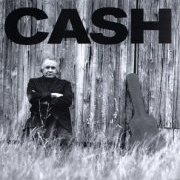 |
American II: Unchained (1996, 43.31) ****/T½ |
|
| Rowboat Sea of Heartbreak Rusty Cage The One Rose (That's Left In My Heart) Country Boy Memories Are Made of This Spiritual The Kneeling Drunkard's Plea |
Southern Accents Mean Eyed Cat Meet Me in Heaven I Never Picked Cotton Unchained I've Been Everywhere |
|
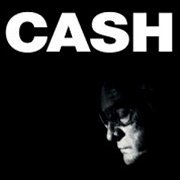 |
American IV: The Man Comes Around (2002, 56.01) ****/TT |
|
| The Man Comes Around Hurt Give My Love to Rose Bridge Over Troubled Water I Hung My Head First Time Ever I Saw Your Face Personal Jesus In My Life |
Sam Hall Danny Boy Desperado I'm So Lonesome I Could Cry Tear Stained Letter Streets of Laredo We'll Meet Again Big Iron |
|
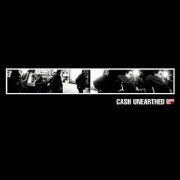 |
Unearthed [Discs 2 & 3] (2004, recorded 1994-2003, 100.18) ****/T |
||
| Pocahontas I'm a Drifter (version 1) Trouble in Mind Down the Line I'm Movin' on As Long as the Grass Shall Grow Heart of Gold Running Kind Everybody's Trying to Be My Baby Brown-Eyed Handsome Man T for Texas (Blue Yodel No. 1) |
Devil's Right Hand I'm a Drifter (version 2) Like a Soldier Drive on (alternate lyrics) Bird on a Wire (live) Singer of Songs L & N Don't Stop Here Anymore Redemption Song Father and Son Chattanooga Sugar Babe He Stopped Loving Her Today |
Hard Times Wichita Lineman Cindy Big Iron Salty Dog Gentle on My Mind You Are My Sunshine You'll Never Walk Alone The Man Comes Around (early take) |
|
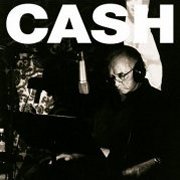 |
American V: A Hundred Highways (2006, 42.51) ****/½ |
|
| Help Me God's Gonna Cut You Down Like the 309 If You Could Read My Mind Further on Up the Road On the Evening Train I Came to Believe Love's Been Good to Me |
A Legend in My Time Rose of My Heart Four Strong Winds I'm Free From the Chain Gang Now |
|
Current availability:
Mellotrons/Chamberlins used:
The first two reviews here were written a couple of days after Johnny Cash's death, in 2003, so I felt the least I could do was to honour him by listening to some of his recent music. For those of you who don't know, Rick Rubin (Def Jam) released a Cash album called American Recordings in '94, featuring a stripped-back sound; just the man and his guitar. Of course, Cash utterly transcends the genre with which he's always been aligned, predating 'alt.country' by decades, the four Rubin-produced LPs released before his death prove it unequivocally. The second album in the series, American II: Unchained, features Tom Petty and his inimitable Heartbreakers as Cash's backing band, a pretty inspired pairing, by the sound of it. Several of the tracks are covers, often from unexpected sources; Rowboat (Beck), Rusty Cage (Soundgarden) etc. with excellent results, in most cases. Both Petty and his keyboard player, Benmont Tench, play Chamberlain on the album, with a variety of strings (violas? Solo violin?) on Spiritual, Southern Accents and Unchained; almost fooling the ear into thinking it's a real string section. Nice Chamby use, but outclassed by the quality of the album itself.
No Chamberlin on American III: Solitary Man, but Tench was back on 2002's American IV: The Man Comes Around, this time on Mellotron, along with ex-Jellyfish man Roger Manning on Chamby and Mellotron. Sadly, it turned out to be the last album of Cash's life, released mere months before the death of his wife, June Carter Cash, followed with almost indecent haste by that of the great man himself. His voice is noticeably less sonorous than on Unchained and his song selection is rather more variable (Bridge Over Troubled Water? Danny Boy?), but there are some stunning performances on the album, not least his searing (and now legendary) version of Nine Inch Nails' Hurt, with a video to match. More covers, not least The Beatles' In My Life and Depeche Mode's Personal Jesus, although hokey country like Give My Love To Rose slightly dilutes the overall effect. Hurt is the first of the album's two tape-replay tracks, with Mellotron flutes and strings from Tench. There's more flutes, plus strings, choirs and raucous cellos from Manning on Bridge Over Troubled Water, which is less cheesy than you might expect, although I'm not sure which is Chamby and which Mellotron.
A year after Cash's death, the astonishing five CD set Unearthed appeared, containing no fewer than four discs of previously-unheard material from the Rubin sessions, plus a 'greatest hits' compiled from Americans I-IV; to quote an online reviewer, "Cash's rejects are better than most artists' greatest hits", with which it's difficult to argue. The unheard material has been loosely grouped together according to style and subject, with disc one, Who's Gonna Cry, being exclusively acoustic and disc four (an unreleased completed album from around the time of American III, which explains its relative brevity), My Mother's Hymn Book, being gospel songs. There are several duets spread across the set, including Joe Strummer (Bob Marley's Redemption Song), Nick Cave (Cindy) and Fiona Apple (a less successful take on Cat Stevens' Father And Son), but it's Cash's voice that captivates here, on old classics like Long Black Veil, or new ones such as Cash's own Caretaker, with the heartbreaking line, "Who's gonna cry when old John dies?"
On the Mellotron/Chamberlin front, Cash's version of Neil Young's Pocahontas has flutes, while Jimmy Webb's gorgeous Wichita Lineman (popularised by Glen Campbell, of course) has sympathetic string and cello parts, although Big Iron's cellos are rather less obvious. Two of the set's four discs (one and four) are entirely acoustic, with only one decent Mellotron track across the other two discs, but that isn't why you need this release. Of the five discs, the only one you may (I do say may) have trouble with is four, My Mother's Hymn Book. Gospel music is all well and good, but to a heathen like me, the usual preposterous nonsense about living for ever in paradise etc. etc. begins to grate after a while. Sorry, John. The tracklisting above omits disc five, as the entry's quite long enough already and the two tape-replay tracks are available on the other two relevant albums.
Just to prove that the vaults are not only not empty, but still contain very worthy material, 2006 brought American V: A Hundred Highways, although, frankly, it could just as easily have been subtitled 'Songs About Death'. Of course, I doubt whether Cash actually intended these songs to fit together like this; posthumous editing can give a very different spin on things, but just about everything here has something to do with death, be it the jaunty Like The 309 or Hank Williams' heartbreaking On The Evening Train. And I think we all know what the authors meant on I'm Free From The Chain Gang Now... Benmont Tench is credited with piano, harpsichord and organ, so what's that I can hear on Springsteen's Further On Up The Road? Polyphonic flutes, too much warble for a Mellotron, so presumably Chamby. Actually, the instrumental credits are exceedingly vague, with a long list of 'additional musicians who offered invaluable contributions', in contrast to the detailed credits on earlier albums. Incidentally, Rubin's sleevenotes are centred around the night he heard Cash had died and how he kept the news from his fellow diners so as not to spoil the evening. In their near-decade of collaboration, the two obviously became very close and I don't think it's an overstatement to say that Rubin effectively retrieved Cash from his '70s and '80s doldrums and possibly even absolved him, in whichever way you care to take that.
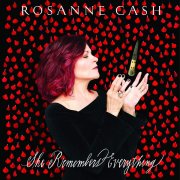 |
She Remembers Everything (2018, 38.49/48.29) ***½/0 (½) |
|
| The Only Thing Worth Fighting for The Undiscovered Country 8 Gods of Harlem Rabbit Hole Crossing to Jerusalem Not Many Miles to Go Everyone But Me She Remembers Everything |
Particle and Wave My Least Favorite Life [Deluxe ed. adds: Nothing But the Truth Every Day Feels Like a New Goodbye The Parting Glass] |
|
Current availability:
Mellotron used:
It would be a mistake to label Rosanne 'daughter of Johnny' Cash as merely a country singer; her remit is far broader than that narrow, restrictive description. 2018's She Remembers Everything is more Americana than country, highlights including The Undiscovered Country ("The undiscovered country between a woman and a man"), Everyone But Me and Deluxe Edition bonus track The Parting Glass.
Justin R. Chase is credited with Mellotron on closer My Least Favorite Life, although whatever he might be playing, sampled or real, is smothered by the track's string section. Patrick Warren plays Mellotron, unusually (he's normally a Chamberlin man), on Deluxe Edition bonus track Nothing But The Truth, with a near-subliminal cello part, briefly audible at one point. A fine album, then, but not a Mellotron one.
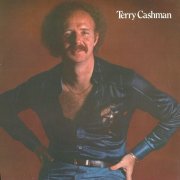 |
Terry Cashman (1976, 44.31) **/½ |
|
| Baby, Baby I Love You Cruisin' There I Go Again Easy to Sing a Love Song Back to the Dawn New York City Blues Young Turks I Can't See |
We'll Be Together Dreamer |
|
Current availability:
Mellotron used:
Dennis "Terry Cashman" Minogue is known as, of all things, an artist who sings almost exclusively about baseball (!), which might just define the term 'niche market'. He's also co-founder of Lifesong Records, an infamous label who screwed over many of their artists, including the mighty Crack the Sky and Dean Friedman. Allegedly. After several records with Tommy West (the other Lifesong co-founder) as Cashman, Pistilli & West, later losing Pistilli, his 1976 eponymous solo debut (thankfully predating his baseball fixation) is a collection of the worst kind of slushy balladry the era spat out, at its least awful on the ambitious, seven-minute Back To The Dawn, although that isn't saying much.
West plays Mellotron, with a very brief flute part at the beginning of Young Turks, one of the album's more upbeat efforts, although those are real strings on several tracks. Honestly, give Terry Cashman a miss. No obvious redeeming features, not even the 'barely half a T' Mellotron work.
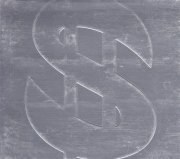 |
Fever Visions (1992, 54.05) ***½/TT |
|
| Virtual Crime Heaven Flapper Valentine Sideshow Coal Tar Moon The Driver Sister |
Queen Belladonna Edge of the World Sodom Bazaar Goodbye #3 |
|
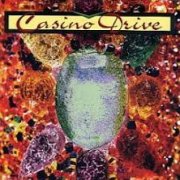 |
From the Back Door of Eden (1994, 57.46) ****/T½ |
|
| Fever Vision From the Back Door of Eden My Brand New Car Has No Brakes Aquarius Awakens Again Magic Wand Slip Away Stranger in the Broken Mirror Glass String |
Body Market Beyond the Sun Rabid Dog |
|
Current availability:
Mellotron used:
Casino Drive were a Japanese/American outfit (the two Japanese members being better-known than the Americans), based in LA, who released two albums in a retro hard rock style in the early '90s. 1992's Fever Visions is a decent enough effort, although much of its material has an air of familiarity about it; not actual plagiarism, but a long way from 'original', too. Best tracks? Strutting opener Virtual Crime, The Driver and Sodom Bazaar, although a preponderance of boogie-woogie piano and a lack of identifiable direction knock half a star off its rating. Vow Wow's Rei Atsumi plays (presumably) his own M400, opening the album with a reedy string part, with background strings on Sideshow, upfront octave strings on Sister, a brief string run on Sodom Bazaar and a handful of chords on closer Goodbye #3, ending with a brief solo flute part.
Their second (and last) release, '94's From the Back Door of Eden, is a far stronger effort, showing a band finding their feet, possibly at its best on Aquarius Awakens Again, Magic Wand, complete with ripping MiniMoog solo, the psychedelic Glass String and near-ten-minute closer Rabid Dog. Less of Rei's Mellotron this time round, with a strings part on the title track, a brief string run on Beyond The Sun and an upfront part in the middle of Rabid Dog. Sadly, given the improvement, that was it for Casino Drive; I presume sales simply weren't high enough for their label to continue funding the band.
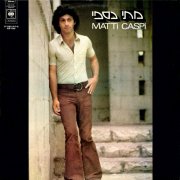 |
Matti Caspi (1974, 38.06) **/T½ |
|
| When God First Said After You Left My Balloon Ho Bidi Bam Bam Puppy Day of Trial Noah How Dares the Stars Ever Changing, Ever New |
Colonel in the Reserves I Know That I'll Die Next Summer |
|
Current availability:
Mellotron used:
Internationally, Matti Caspi is probably best known (if at all) for being the man behind Israel's 1976 Eurovision entry, Emor Shalom, although he's a major name in his own country. 1974's Hebrew-language Matti Caspi was his first solo album, after a couple of collaborations, a pretty typical local-market pop record of the time, shifting between folk-influenced material, piano balladry and dated, pre-psych material, notably the brass-driven Noah, apparently his entry for that year's Israeli Songs Festival. Any listenable efforts? Perhaps Colonel In The Reserves (these titles are all in translation, incidentally), but only because it's the least tedious thing here.
Caspi plays Mellotron (did Triton Studios own an M400?), with background strings on opener When God First Said and After You Left and upfront chordal strings on Ever Changing, Ever New, although the strings on Noah are real. After those first two tracks, I wondered whether this was going to be a Mellotron 'sleeper', absolutely stuffed with the thing, but no, we don't even get that consolation. Really, don't bother.
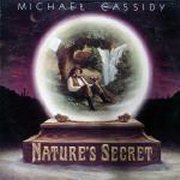 |
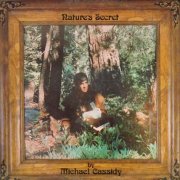 |
Nature's Secret (1977, 33.52) **½/T |
|
| Come Along Golden Avatara Sign of Surrender Simple Living Spirit of Reason Hidden Worlds I'll Never Be Younger Than Today Nature's Secret |
Embodiment of Bliss Oh Thoughtful Men |
||
Current availability:
Mellotron used:
If you're British and have ever trawled through second-hand or charity shops (and who hasn't?), you will at some point have run into a copy of Golden Avatar's 1976 opus Change of Heart. I have one. Have I ever played it? No, I haven't. I believe that the reason the market's so flooded with them is that they were sold, probably for a 'contribution', by London's Krishnas (or Krsnas), a familiar, orange-robed sight to anyone who's spent any time in the West End.
The man behind the album, Michael Cassidy, released another album the following year under his own name, Nature's Secret, which seems to've been available in various sleeve designs, depending on the country of release. It's dated for '77, let alone '79, the release date I've seen quoted as often as not, its mid-'70s soft rock aesthetic disappearing gently into a haze of... Hang on, this guy's a Krishna devotee, not a West Coast hippy, so the phrase I was about to use, 'pot smoke', is probably irrelevant. Or not? In fairness, I've heard worse, but the upbeat material's pretty disposable, leaving the gentler tracks (Surrender, I'll Never Be Younger Than Today) as its least dull.
Wayne Cook (Steppenwolf, other lesser-knowns) plays keys, with quite unmistakeable Mellotron strings on Spirit Of Reason and Hidden Worlds, although that seems to be our lot. Compared to Change of Heart, Nature's Secret is relatively hard to find, or maybe it turns up in places other than London. Either way, while vaguely acceptable, it's all distinctly unexciting, with only a couple of minor Mellotron appearances to spice it up at all.
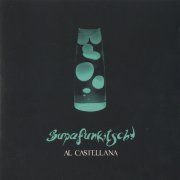 |
Supafunkitsch! (2007, 56.53) **½/½ |
|
| Corri Vado Via Non C'è Verità Ora Non Puoi Ogni Istante Perdonami 6 Quel Che 6 Mi Manchi |
Supafunkitsch Lento Abbandono Il Male Che Non Sai Lascia Che Sia Sbagliando Riprovando Cruisin' |
|
Current availability:
Mellotron used:
It doesn't take a massive leap of the imagination to work out that Al Castellana's commonly-misspelled second solo release, Supafunkitsch!, is, indeed, an album that channels The Funk. But does it channel it well? I'm not sure I can even tell, but it channels it in Italian, for those oddballs allergic to other-language music (I've met them, believe me). Anything here I actually liked? The Clavinet-driven Non C'è Verità and Perdonami, perhaps, my dislikes being the tracks that ape that Philly soul sound, particularly Ogni Istante, sitar or no sitar and Lento Abbandono.
Nick Ardessi's credited with Hammond and Mellotron on opener Corri, with a distant string part that actually sounds (distantly) convincing, although how I'll ever find out for sure is an unknown thing. Funky enough for funk fans, then, probably too funky for the rest of us.
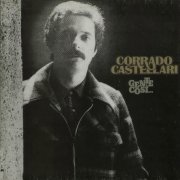 |
Gente Così... (1975, 40.14) **½/0 |
|
| Gente Così Come Noi Il Boa Gio' Promemoria per Lei La Signora Sofia A Parte Che Con Te No... Ma Dai... Ma Va...! Chi e' Lui |
Divina Andiamo di Notte |
|
Current availability:
Mellotron used:
Corrado Castellari (1945-2013) was chiefly known as a songwriter, only actually releasing two albums of his own, 1975's Gente Così... being the second. Surprisingly, there's a prog connection, as members of one-off Italian prog gods Maxophone are amongst the contributing musicians, although the best this dull album can manage is six-minute orchestral closer Andiamo Di Notte.
Maxophone's Sergio Lattuada allegedly plays Mellotron (or so it says on the rear sleeve), although, with real strings everywhere you look, I'd love to know where. Unlike several German artists of the period, Italians aren't known for fake Mellotron credits, so I'll leave this here on the offchance that anyone can give me more information.
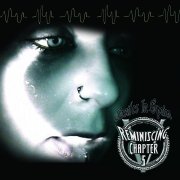 |
Reminiscing Chapter V (2011, 40.11) **½/½ |
|
| Breathe Old Man Deranged The Way You Want to My Blue Sea On Top of the World Mothers Song Surrounding Me |
¿Que Paso Nino? Again |
|
Current availability:
Mellotron used:
San Franciscans Castles in Spain sit somewhere in between several stools, not least old-school hard rock and '90s alt.rock, with folk and psych interjections, at least on their fifth album, Reminiscing Chapter V. Unfortunately, that relatively promising-sounding stew is less fun than it sounds, although originals like My Blue Sea and Surrounding Me aren't too bad, ditto their version of Neil Young's Old Man.
Sylvia Massy plays her M400 on a couple of tracks, with distant strings (under real ones) on Old Man, although, if they pull the same trick on Mothers [sic.] Song, it's effectively inaudible. Not really that exciting, very little Mellotron.
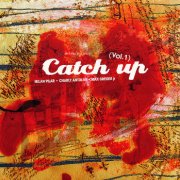 |
Catch Up Vol. 1 (1975, 35.47) ***/TTCatch UpBordun Onkel Joe Moonlight on a Baldhead Lydia Blues for the Kaiser A Night Without Dreams/The Little Things That Make Us Happy Spinning Wheel |
Current availability:
Mellotron used:
The multi-national trio (Czech, Swiss and German) of Milan Pilar, Charly Antolini and Max Greger Jr. apparently met while playing in Greger's father's (doubtless jazz) band. They decided to record an album of them 'blowing' at their hottest, calling themselves Catch Up, although I've also seen them listed under their names. Catch Up Vol. 1 (I don't believe there was ever a Vol. 2) is in many ways a typical German fusion album, full of fiery playing, but this time adding a funk sensibility that most of their peers couldn't match, making this a favourite with the breakbeat crowd. As with most fusion, if you're of the post-beatnik persuasion you'll probably like it and if not... Spinning Wheel was the one track that really caught my ear, probably due to Greger's ripping Hammond solo, reminding me slightly of the much-missed Rick van der Linden's playing in Trace.
Fairly typical fusion Mellotron use, with slabs of heavily-reverbed strings wafting around in the background on Onkel Joe and a cello line with discordant strings in Lydia. Slightly more tuneful strings and cellos in Blues For The Kaiser and a flute melody in the latter part of A Night Without Dreams/The Little Things That Make Us Happy makes for reasonably heavy Mellotron use in the genre, bordering the point at which you could buy it (cheaply) for that alone. Decent enough, with the proviso that it's instrumental jazz fusion of the most uncompromising kind.
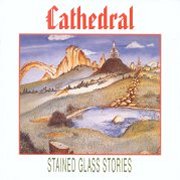 |
 |
Stained Glass Stories (1978, 45.25) ****½/TTTT½IntrospectGong The Crossing Days and Changes The Search |
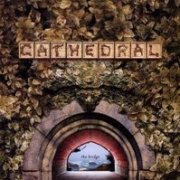 |
The Bridge (2007, 58.40) ****/TTTTThe Monsterhead Suite: parts 1, 2, & 3Satellite Hollins Kithara Interludium Angular World The Lake The Secret |
Current availability:
Mellotrons used:
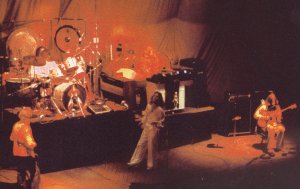 |
For anyone who's heard Sweden's Änglagård, the Cathedral sound will have a strange ring of familiarity to it; that 'play a riff twice, then move on to something else before boredom sets in' approach. However, Stained Glass Stories predates the Swedes by nearly fifteen years, so Cathedral can probably be said to have actually invented the technique. It's impossible to pick a standout track, although album opener Introspect may just possibly be the best example of their sound, featuring Mellotron church organ as well as the more familiar sounds. Keyboard player Tom Doncourt goes all-out on the Mellotron front, with more string section and (male voice?) choir than you can shake the proverbial stick at, including a possibly over-ambitious choir melody that stretches the machine, er, slightly past its design limitations. Fantastic use all round, though, making this one of the American Mellotron albums. Doncourt still has his machine, unlike so many of his contemporaries and is talking about putting out some of his post-Cathedral work at some point. So, if you want to hear one of the best US prog albums EVER, buy!
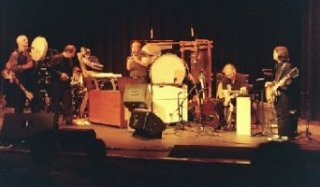 |
Just when you thought it was safe to go back in the water... Fast-forward almost thirty years and instead of solo Doncourt, what should appear but a new Cathedral album? 2007's The Bridge features, amazingly, four of the five original band members, with only guitarist Rudy Perrone missing (and then only recently), replaced by David Doig. So, have they mellowed in the interim? Have they settled into a comfy musical middle age, playing soft rock with a hint of neo-prog about it? Have they hell. Opener The Monsterhead Suite has a Crimson feel about it, while Satellite's angular riffs aren't going to please the armchair brigade one little bit. Good. Unsurprisingly, the album has echoes of the band's original sound about it, although also unsurprisingly, many other influences have clearly been soaked up in the intervening decades, which only serve to broaden their palette and make them more inventive. Paul Seal's vocals are both as melodic and as unconventional as ever, the marvellously-named Mercury Caronia IV's percussion work is still offbeat, while remaining strictly on the beat and Fred Callan (driving force behind the reformation, apparently) still plays Taurus pedals, though nowhere near as much as I'd like. Album's highpoint? hard to say, but the closing couple of minutes of The Secret are pretty cataclysmic.
Doncourt's Mellotron work is as full-on as ever, with some tricky string pitchbends on The Monsterhead Suite, alongside cellos, choirs and some unidentified woodwind. Of course, this is 2007, so he's also credited with 'other keyboards', so it's not always easy to determine what's what with the less-obvious sounds, although the bulk of his work consists of the Old Favourites, but since when did we have a problem with that? Although Tom plays real flute on the album, that's definitely the taped variety at the beginning of Angular World (see, told you they were angular) and is that Mellotron brass in The Secret? In fact, the only Mellotron-free track is Doig's acoustic solo piece, Kithara Interludium, which doesn't overreach itself, even at seven minutes, making this a Mellotron-lover's dream.
So; Stained Glass Stories is one of the '70s most inventive US prog albums and The Bridge is one of the most inventive of whatever you call this decade, making the flaccid likes of The Flower Kings et al. look as safe as they are. If you have any interest in lesser-known prog, I strongly urge you to buy both these albums pronto (assuming you can actually find their debut, as I believe it's been criminally discontinued), both for the music and the Mellotron. And it's real!
See: Rudy Perrone | Fauve Museum